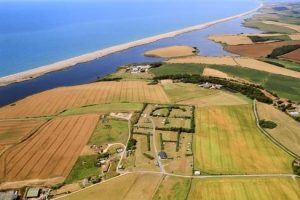petebellengergmailcom
Posts by Peter Bellenger:
Jesus Christ is the cornerstone

Why ‘no ordinary’ hope?

In chapter 4 of Romans, St. Paul writes something fascinating to me. He says, “Against all hope, Abraham in hope believed”. That would seem to make no sense if “all” really does mean all, which I believe it does. This is why I believe Christian hope must be, and is, no ordinary hope. We perhaps could say something like this: “against all [ordinary] hope, Abraham in [unordinary] hope believed and so became the father of many nations”. Abraham believed in God and became the father of many nations – ie the church. Therefore, Paul considers (retrospectively, of course) Abraham’s hope as Christian hope.
No ordinary hope
So what is ‘unordinary’ about Abraham’s and Christian hope? A hope that can be held against all hope? That is to say, a hope that we can still hold on to when we ourselves and those around us can see in our circumstances no hope whatsoever.
As we know, ordinarily hope is aspirational. It is founded upon what might and could happen. It may be almost certain: for example, a beloved child hoping that their mum and dad will give them a nice birthday present. Or it may, on the other end of the scale, be what we might call ‘wishful thinking‘: for example, I could hope that Brighton and Hove Albion win the premier league this year. The point is that all things we ordinarily speak of in terms of hope are to a certain degree uncertain. Their likelihood could, in theory, be placed by a statistician/actuary on a probability scale, say from 0.01% to 99.99%. But that figure could never be 100% because we are talking about the future. Paul is saying in his letter to the Romans something different. Something that I think makes Christian hope no ordinary hope. Firstly, because the event that we hope for has a past as well as future component. Paul can use a word as strong as “guarantee” (Romans 4:16) when speaking about that which our hope is in. His argument throughout is that, because the resurrection of Jesus is an event that happened in history, Christian hope is in a future that is therefore guaranteed because the event on which everything depends has already happened. And secondly, our hope is in God who is the author of hope – he has authority over it – because he is the “God of hope“ (Romans 15:13)we have a hope that we can base our whole life on, even when it seems like there is no hope, no future, because Jesus is God. He is the author of hope, the one who creates it. He does not manufacture it out of something, he creates it (NB the resurrection is the doctrinal foundation for creation ex nihilo, but this is beyond my point here). The resurrection of Jesus from the dead is not an event that fits within any frame of reference that we had previously. It is impossible unless Jesus is God (is why Thomas declares to the risen Jesus, after he has touched Jesus’ scars of crucifixion and death “my Lord and my God”, John 20:28). To live in this hope is not at all to deny the rationality and causality of our world, but to declare with our lives that this rationality is contingent upon a God who creates and sustains it.
Lesslie Newbigin: “The event of the resurrection … breaks every mould that would imprison God in the rationalism of a fallen world. … It is the starting point for a new kind of rationality, for the possibility of living hopefully in a world without hope, for the perpetual praise of God who … breaks through fixed orders to create ever-new situations of surprise and joy.”
No ordinary hope
It is a legitimate question to ask then, ‘why does Paul use the word hope at all?’ If the resurrection guarantees our future and that event is incredible to any frame of reference, outside of the event itself, is ‘hope’ an appropriate word to use?
I think hope is exactly the right word to use for two reasons that follow from the two reasons that this is no ordinary hope. Firstly, hope is the right word because it is believing in testimony from the past (historical witness) and looking forward to in a future we are waiting for. Faith/Trust is required in this believing and waiting. In this sense it is no different from ordinary hope: “For in this hope we were saved. But hope that is seen is no hope at all. Who hopes for what they already have?” (Romans 8:24b-25a). This is true at the same time as maintaining that the future in which we hope and wait for is guaranteed, because everything upon which the future depends has already happened in the resurrection of Jesus Christ.
Secondly, hope is the right word to use because this assured future is not our possession. It is forever a gift (grace); it is forever based on an ongoing, eternal, relationship between us and God (at-one-ment) created by the life, death and resurrection of Jesus. The nature of this relationship from the human side is faith, and from God’s side the gift and presence of the Holy Spirit poured into our hearts through faith. I’m hesitantly using the phrase “from the human side” because faith is a gift of God too, lest we fall in to the mistake of undermining grace. Theology has the difficult task of describing the relationship between divine and human agency/freedom such that the integrity of both is maintained, including the contingency of the latter to the former. But my point here is that relationships are never possessed, they are always in the gift of the other. We entrust ourselves in one another. God has given (entrusted) himself to us in Jesus and we give (entrust) ourselves to him by faith. Faith and trust are relational terms. Whilst we could argue that relationships are possessed: for example, I am forever the son of my mother and father; my sonship is a biological fact that is ‘mine‘ in that sense. And yet I cannot know what it means to be in that relationship without them, without knowing them. I cannot possess the relationship in that sense, because I cannot possess them. I depend on their participation and commitment, and they depend upon mine. The nature of this participation is faith and trust. One cannot know anything or anyone without faith and trust. (Our knowledge of persons – just as in science – is never absolute or our possession. It is a public not private, temporal not abstract, practical not theoretical, truth. All of which is laid out by far far more intelligent theologians and scientists than I could ever be.) Returning to my point here, if faith is the means by which we enter into a relationship with God and come to know his love, this makes our hope in him still hope. This is because it is not our possession. It is a matter of trust. It is, as I have said, no ordinary hope because the person (Jesus Christ ) we are trusting is God. God’s total faithfulness to us shown in Jesus and the history of Israel, and his absolute sovereignty, as Creator of all, to accomplish all that he has promised, means that our hope is assured. But the need for faith, the relational nature of our assurance, means that this no ordinary hope is nonetheless still hope. There is no place for triumphalism. Paul’s conclusion to Romans 8 is as unequivocal and all encompassing as it could possibly be – it is arguably the profoundest statement of our hope in the epistles of the New Testament – and yet it is essential that we do not miss that it is a statement of faith, not a statement of an indubitable fact: “For I am convinced that neither death nor life, neither angels nor demons, neither the present nor the future, nor any powers, neither height nor depth, nor anything else in all creation, will be able to separate us from the love of God that is in Christ Jesus our Lord.” This conviction, this faith, is not a possession, but neither is it intended to be read as wishful thinking. For Paul (without implying necessarily that he wrote these words in Hebrews), faith is “confidence about what we hope for and assurance of what we do not see“ (11:1). Believing in Jesus’ life, death and resurrection creates a freedom to live in hope when all ordinary hope is gone. And crucially to do so rationally. A rationality that can never be triumphalist because we do not possess what we hope for, but neither can it be mere wishful thinking.
We are not stuck between past and future: God’s presence now by the Holy Spirit is the gift of hope in the present
The Christian faith is founded on a relationship with God in Jesus Christ that is both historical/particular and personal/experiential. Historical testimony needs to be scrutinised, and this not the moment to go into what is, I believe, compelling evidence for the resurrection. My point is that this rationality, this hope, cannot be characterised as wishful. It’s either true or not, in a similar way to how scientific truth is believed or disproved. It is about reality, and we can only come to know anything about reality and truth by believing something that we seek to know. And this is never an academic or abstract reality. The Christian witness is that this believing in Jesus is the way to know a hope in the present that can never disappoint us or put us to shame. (We will never be embarrassed in the future by putting all our hope in Jesus). There is a personal and experiential, as well as historical, foundation to our hope in Jesus: “hope does not put us to shame, because God’s love has been poured out into our hearts through the Holy Spirit, who has been given to us.” (Romans 5:5) Therefore, we can personally say that our hope in Jesus is no ordinary hope.
God hasn’t left us only with historical testimony from the past, as absolutely vital and central to our faith as that is. In terms of the future, we don’t yet see all that will one day be when Jesus returns, and that is why faith and hope remain. But our hope means that we do not have to peer anxiously into the future. We have no ordinary hope because of what Jesus already done guaranteeing what will be our future in him. But our waiting, our hoping, doesn’t just have a past and a future reality to it. There is a present reality to our hope. The gift of God’s personal presence, the Holy Spirit, means not only that nothing will (ultimately) be able to separate us from God’s love, but nothing can (here and now, however hopeless things have got) separate us from the love of God poured in to our hearts by the Holy Spirit who has been given to us. This is our ultimate reason for saying that this hope in Jesus is no ordinary hope.
In case this all sounds far too neat and tidy, there is so much more to say about hope in the midst of the human condition: suffering, loss, pain, failure, isolation, fear, guilt, shame (along of course with joy, laughter, fulfillment, love, beauty, creativity, delight). The thing I am trying to convey by the title of this website is that there is because of Jesus reason to hold onto hope even when we cannot see any reason to hope. The hope Jesus brings is no ordinary hope because it doesn’t depend on our having any reasons to be hopeful beyond the ‘fact’ (believed not possessed in an indubitable way) of his resurrection from the dead after dying on the cross for us.

HTB and Alpha
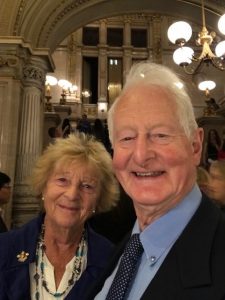 I arrived in London in 1997 and had the blessing of finding a church called Holy Trinity Brompton and going on a course called Alpha. HTB was led by Sandy and Annette Millar and the Alpha course was being run by Nicky and Pippa Gumbel (who took on the leadership of HTB when Sandy and Annette moved to St Mark’s Tollington Park).
I arrived in London in 1997 and had the blessing of finding a church called Holy Trinity Brompton and going on a course called Alpha. HTB was led by Sandy and Annette Millar and the Alpha course was being run by Nicky and Pippa Gumbel (who took on the leadership of HTB when Sandy and Annette moved to St Mark’s Tollington Park).
 What God has done in the church here (and all around the world) through these two couples and the core team around them is hard to overstate. They have brought the hope of Jesus Christ to millions of men and women, boys and girls, from every walk of life, every race , every educational background. In prisons, hospitals, schools and campuses, villages and cities, housing estates and country estates, people have been touched by the love of God through them. I am one of those people and I am forever grateful.
What God has done in the church here (and all around the world) through these two couples and the core team around them is hard to overstate. They have brought the hope of Jesus Christ to millions of men and women, boys and girls, from every walk of life, every race , every educational background. In prisons, hospitals, schools and campuses, villages and cities, housing estates and country estates, people have been touched by the love of God through them. I am one of those people and I am forever grateful.
And if you would like to hear about the Alpha course, which is now on YouTube, take a look at this video below.
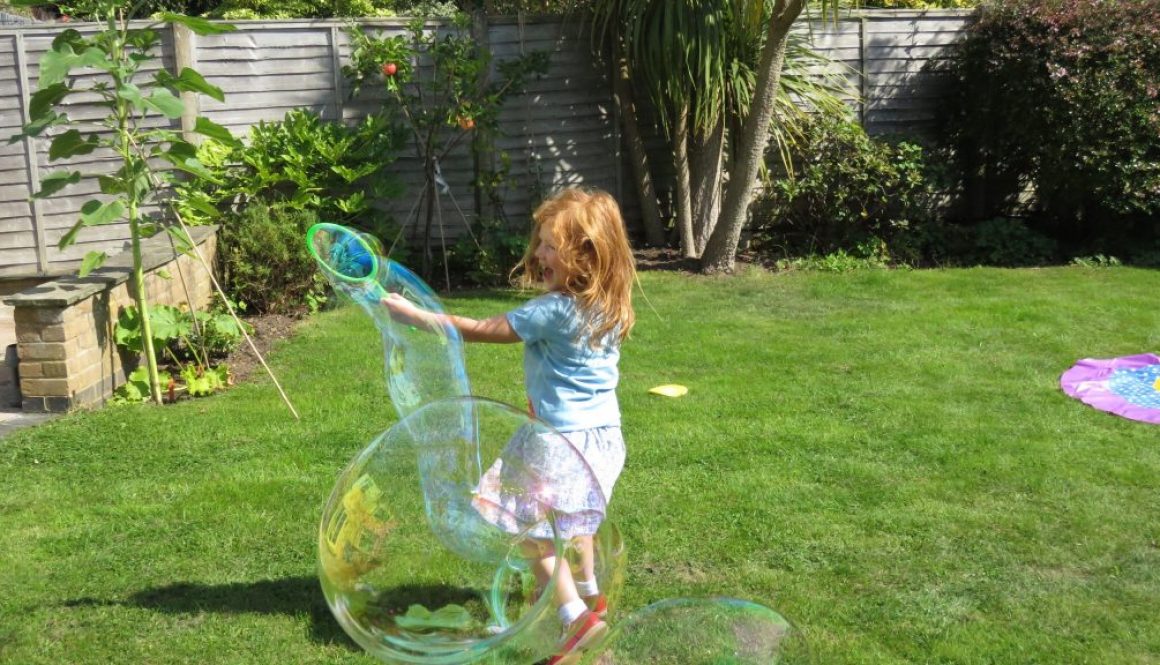
Joy: the serious business of heaven
CS Lewis said “Joy is the serious business of heaven”. Jesus said this about joy…
“The kingdom of heaven is like treasure hidden in a field. When a man found it, he hid it again, and then in his joy went and sold all he had and bought that field. Again, the kingdom of heaven is like a merchant looking for fine pearls. When he found one of great value, he went away and sold everything he had and bought it.” (Matt 13:44-45)
These two parables that Jesus tells are so beautifully simple. Jesus says that the Kingdom of Heaven – the reality of how things really are – is like a joy filled discovery. Like finding treasure in a field. Like a pearl that is so precious that we are prepared to give everything we’ve got for it .
There are two ways of looking at what the treasure or pearl is that fills us with joy when we discover it.
Firstly, the treasure is God’s love for us. It is what Jesus has done for us on the Cross. Who we are because of Jesus.
And that brings such freedom.
Freedom from sin and guilt. “There is now no condemnation for those who are in Christ Jesus” Grace. There is nothing to prove. And the power of sin is broken. We can truly be the person that God made us to be. I don’t have to sin; if I sin I have an advocate (1 John 1:9). In this freedom there is such Joy. The gift of life.he first chapter of John’s first letter (1 John 1) is a beautiful account from Jesus closest friend of everything that ultimately matters. John writes that he has seen it with his own eyes and that it is “joy” that compels him to share what he has seen and knows.
I think there may be people who know that in their heads but wonder why they don’t feel that joyful about it. It’s ‘a’ reality, but the experience of other realities seem more real: disappointments, loneliness, anxieties perhaps. These things can rob us of joy. When things are going well, the joy comes, but when things aren’t the joy gets clouded out.
So let’s get practical. How can that treasure of the kingdom of heaven be to us the great reality of our lives. The joy of our hearts no matter what? And I am blogging to myself as much as anyone here because I’m not good at this.
It is interesting that Jesus speaks of the treasure of the kingdom being “hidden” in the field. We have to go looking for it. Prayer is key to that. Especially reflecting on God’s love which is the story of the Bible from beginning to end. And when we’ve found our joy, we need to remember how we found it so we can find it again and again. God is committed to helping us find joy. It is the fruit of his Spirit in us (Gal 5:22) – a gift that we can find as we trust and believe in God’s word. In other words, joy is not something we have to work for. It is a discovery like treasure in a field.
In tough times we will not feel joyful instantaneously. Personally, I want to feel it straight away. If I don’t, I panic. It’s especially at these times that we need to pray (without words if we have none), contemplate God’s unconditional unfailing love, worship Jesus, petition for the things we are longing for. Sometimes we need someone to prayer with us and help us find that treasure that seems lost, but is only hidden from view. Don Miller: “We learn that we are loveable, or unloveable, from other people… … That is why God tells us so many times to love each other”. God’s love is discovered in a community in which God’s love is shared.
So that is the first way of looking at the parable: the treasure of the kingdom is God’s love for us. The other way of looking at the parable is similar and just as amazing.
Secondly, the treasure is you
The treasure in the field, the pearl of great price (which the man gave everything he had for) is every person who has ever lived. And that man is Jesus.
God gave everything he had for us. He gave Jesus. His beloved Son. He gave of himself. That was his joy. Hebrews 12:2 says of Jesus: “who for the joy set before him endured the cross, scorning its shame, and sat down at the right hand of God.” The joy set before him was you. His passion to save you. That your life would be one with him. Nothing was more precious – God gives everything – for you. And there is no reluctance, no obligation, no disappointment towards us. In God there is simply love, faithfulness and joy. Dallas Willard: “God is full of joy. … The abundance of his love and generosity is inseparable from his infinite joy. All of the good and beautiful things [of this world] … God continuously experiences in all their breadth and depth and richness.”
The Holy Spirit brings that joy-filled connection between heaven and earth. The Holy Spirit lives in you – calling forth joy. Life in the Spirit is pure gift. And so the Christian life should be marked by joy not obligation. Lesslie Newbigin, the great missionary said this in what I think was his final sermon: “I find it strange that conferences about mission and evangelism are often pervaded … by a kind of anxiety and guilt – as though this were a program that we have a responsibility to carry out and about which we haven’t been very successful. Isn’t [that] remarkable [when] according to the New Testament the whole thing begins with an enormous explosion of joy? The disciples returned to Jerusalem with great joy and were continually in the temple praising God! It seems to me … that the mission of the church is the communication of that joy.”
Newbigin concludes: “The event of the resurrection … breaks every mould that would imprison God in the rationalism of a fallen world. … It is the starting point for a new kind of rationality, for the possibility of living hopefully in a world without hope, for the perpetual praise of God who … breaks through fixed orders to create ever-new situations of surprise and joy.”
‘The possibility of living hopefully in a world without hope’. That is resurrection faith. Ten years ago I had a period when I didn’t believe a back injury I had was ever going to get better. I was between jobs and wondering where life was going. I wanted to feel joy. I felt bad that I didn’t as I thought of all the blessings of God. I felt quite hopeless. And night I couldn’t sleep. I was crying to God asking him why? what now? etc. And I read Psalm 30:5: “weeping may remain for a night, but joy comes in the morning.”That is resurrection faith. Good Friday becomes Easter Sunday.
I realised that part of my faith was knowing that joy would have the last word. Even if it wasn’t the present word. And that reminder was like a discovery – like stumbling upon treasure. And the knowledge of future joy, brought joy into a present. A present which was still the same. But now transformed. I believe that is what the Holy Spirit wants to do in us every time we are struggling to find joy.
I have come to see that the present and future reality of joy are two sides of the same coin. Firstly, Jesus shared our life joyfully. He reoriented the gift of life back to its creator. A creator full of joy. His will for us is to know real joy in the present life. And never to feel guilty about it. Embracing joy of the life god gives us – in a way that is neither world-renouncing nor world-conforming. But secondly Jesus showed a way for future joy to give us the resources for suffering and pain in the present. For the joy that was set before him, he endured the cross. We will never suffer what Jesus suffered. Joy can always be the last word for us, only because of what Jesus gave on the cross. Everything he had for us. But we can know that joy will come in the morning because of him and so walk as he walked in pain.
As you may know, Psalm 126 is one of my favourite psalms. It speaks to me of this two-fold reality of joy. The first three verses speak of the first aspect. The pure gift of salvation. The grace that is ours today in Jesus Christ. The discovery that can fill us with joy. It is a redemption song: “When the Lord brought back the captives to Zion, we were like those who dreamed. Our mouths were filled with laughter, and our tongues with songs of joy. Then it was said among the nations, ‘The Lord has done great things for them.’ The Lord has done great things for us, and we are filled with joy.” The church is to be a people of joy. Who celebrate life and the gift of grace in the world in every place.
And the psalm speaks of the other aspect of joy. The same reality in a different key. The joy that transforms the times of this life that are marked by tears. A future joy that we can know is the last word even when we do not feel it now. A discovery that can bring a new kind of joy. A true and living hope. “Restore our fortunes O Lord, like streams in the Negev. Those who sow in tears will reap with songs of joy. Those who go out weeping, carrying seed to sow, will return with songs of joy, carrying the harvest home.”
Joy will have the last word. Tears for a broken world or broken self, when given to God, when planted alongside the Gospel of God’s grace, will one day become songs of joy. Because in raising Jesus from the dead, God has spoken a final word to sin and death. In Christ they are finished.
Joy in the present, joy in the future. The good news of Jesus – and who you are in Him – is the pearl of great price. Worth everything we’ve got. Because it is everything worth having.

My favourite film
My favourite film is Good Will Hunting. I watched it as I flew to Australia over the Himalayas on a cloudless starry night seeing lights from villages surrounded by a vast expanse of snow covered mountains. It was extraordinarily moving and it made the impact of this profoundly moving film all the more poignant to me. Here are my four favourite clips. Will (Matt Damon) is an orphan who keeps getting into fights because it is all he knows, but he is a prodigious self-taught mathematician who Sean (Robin Williams) is trying to help. Who would not want a mentor like him?
On authentic courageous humanity
On perfectionism
On regret
On shame
And my favourite clip from the whole film that moved me so much, as i thought back aged 23 at all the amazing friends that had already touched my life, is this one.
The sacrificial loyalty of a friend who hopes his best friend won’t be there when he goes to pick him up for work because it would mean that Will is becoming all he can be is amazing. It comes to pass at the end of the film.
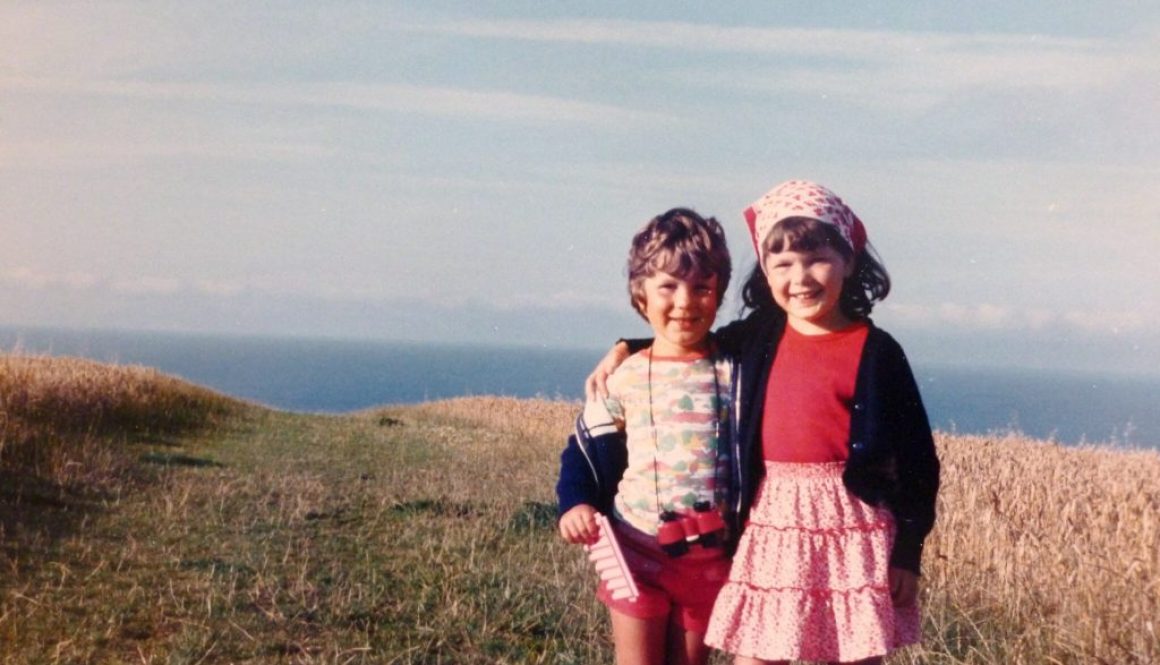
Sea Barn Farm
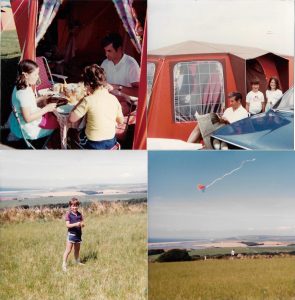 My best holidays growing up were spent on this beautifully simple and scenic campsite overlooking the Chessil Beach and the English Channel beyond. I loved the food Mum would make in the tent, getting Dad his paper at the camp shop and whilst there browsing through the Aladdin’s cave of toys like polystyrene aeroplanes and kites and frisbees and world war two animated story books. I could literally lay on my back for hours watching my single string kite against the blue sky.
My best holidays growing up were spent on this beautifully simple and scenic campsite overlooking the Chessil Beach and the English Channel beyond. I loved the food Mum would make in the tent, getting Dad his paper at the camp shop and whilst there browsing through the Aladdin’s cave of toys like polystyrene aeroplanes and kites and frisbees and world war two animated story books. I could literally lay on my back for hours watching my single string kite against the blue sky.

Lego
My favourite pastime growing up (when not playing tennis against the wall or golf with air balls on the island of grass in the middle of our cul de sac!) was Lego by some margin. My best friend Jez was so much more patient and artistic than me. He would build amazing trucks that actually looked like trucks, whereas the mathematician/scientist in me like cubic and symmetrical designs so all my trucks looked like bricks with wheels! Good and strong but not very life like. My best birthday or Christmas present ever was when I got the Lego technics car. I needed a lot of help from Jez to put it together but it was so awesome to play with. The steering wheel turned the front wheels and there was a drive shat to the rear wheels with a differential and suspension. It was the pinnacle of Lego technology in the 80’s.
When I moved back to Sussex to work at Brighton college one of my greatest joys was being able to spend lovely weekend afternoons with the Helps family. They made me feel like part of the family and Tom and Ed reintroduced me to the joys of Lego as well as football in the garden and walks in the lovely Sussex countryside. That first year in Sussex was not easy for me and times with the Helps family were like a beautiful break from all that I was finding so hard.

Nigel Owens
Best referee in the world and funny too…!
Here are some of his best on-field quotes:
“Don’t swear, now, you’re on telly, mun.”
- To New Zealand’s Dan Carter in the 2015 World Cup Final
“I don’t think we’ve met before, but I’m the referee… this is not soccer.”
- Probably his most famous refrain, when dealing with complaining players, uttered first to a protesting Treviso scrum-half Tobias Botes playing against Munster
“If you want to cuddle, do it off the field, not on it.”
- To fighting players in a Harlequins vs Wasps match.
“You’re both acting very immature.”
- To a brawling Mike Brown and Yoann Huget after a disagreement in a match between England and France.
“I can’t give you the three points but I’ll give you a go at them.”
- In response to a captain indicating he wishes to attempt a kicked penalty by saying his side will “take the three”.
“The hands out law changed three years ago, where have you been?”
- To a very-offside Cian Healy at the ruck.
“Uhh.. Christopher!”
- To Chris Robshaw who was complaining about a French player lying around the base of a ruck.
“The football stadium is 500 yards that way.”
- During a Leicester v Ulster match at Welford Road, which is a stone’s throw from the King Power.
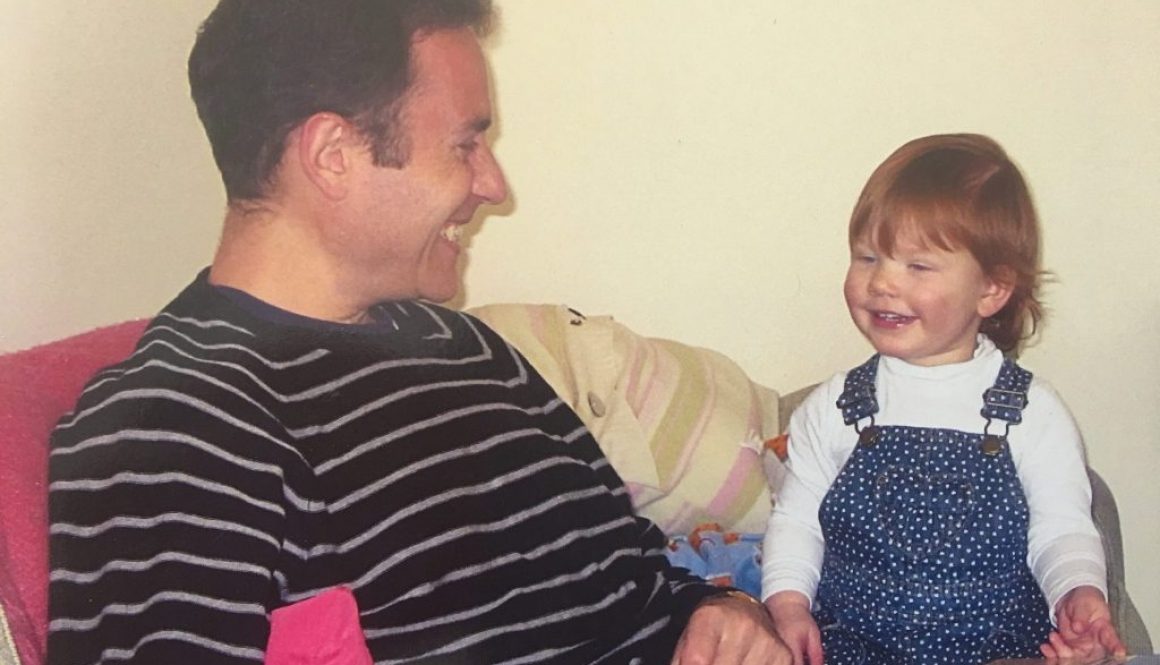
Fun with Imogen
I loved visiting the Lewis’ in Easter holidays 2014. It was the last time that I was able to run and so I love this photo with Imogen in the park behind their house, and reading stories with Imogen on the sofa.


